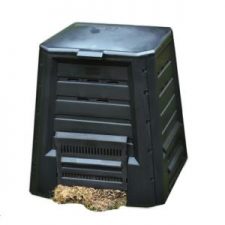Two Israeli women founded TIPA – the first company in Israel to offer 100% biodegradable and recyclable beverage packaging, as an alternative to plastics. This is a particularly difficult feat to achieve.
Daphna Nissenbaum and Tal Neuman founded the company in 2010 in order to address the dire need for packaging that is genuinely ecologically-sensitive. And so far, they have they come up with three fresh designs, namely the Tip, Tipack and Tipup that appear to fit the bill. The packaging works to replace juice boxes and plastics that hold liquids. Other similar plastic alternative companies have come on board since, from Israel, and include Melodea and W-Cycle.
They claim that their films biodegrade within 180 days if subjected to standard industrial composting environments. What this means, and we have discussed this in various previous posts, in order for compostable plastics to biodegrade, it is crucial that they receive adequate amounts of oxygen.
On their website, the founders emphasize that for TIPA, sustainability is not just another 14 letter word but the very essence of their existence. Along with their talented posse of researchers and other employees, they strive to make packaging as environmentally benign as an orange peel.
That way, all residents of the Middle East and elsewhere who don’t quite get how destructive our material and waste stream has become to the planet can discard their waste without wondering how many years it will languish in a landfill, generating gas and leaching chemicals into the environment.
Of course, these products are only as good as the locations in which they are sold.
Let’s take Yemen for example. Unless the Environmental Ministry is adequately briefed and establishes a chain of appropriate industrial composting heaps where biodegradable products can slowly disintegrate in optimum conditions, these products will be useless to them. Same goes for other countries.
Luckily there are many countries around the world that are already equipped with the appropriate facilities to manage cutting edge packaging and they should get first dibs. Now the onus lies upon them to prioritize the decrease the amount of waste that escapes into our oceans to land in the bellies of unfortunate marine creatures.
For loads more information, please visit Tipa’s refreshingly accessible and transparent website. Oh, and by the way, did we mention that we wish women could rule the world (well, I do anyway)? Because only a woman would come up with a product this gentle and altruistic.
Coating and plastics alternatives
In 2022, TIPA offered 312MET home- and industrially-compostable barrier film to package nuts and crisps, designed to provide a high barrier that does not require an additional sealing layer for full effectiveness.
The company claims that its film, will combat the 290,000 tonnes of plastic packaging waste generated in the UK every year, as approximated by WRAP. Only six percent of that figure is said to be recycled, the rest being sent to landfill.
With Britain supposedly consuming six billion packets of crisps and other salty snacks per year, it is thought that putting compostable packaging into circulation will lower waste levels without jeopardising demand for the products.
TIPA also suggests that its new design can withstand the corrosive properties of salt and oil from the crisps and nuts it is set to package – a factor said to have been missing from similar designs in the past. Combined with the high barrier, this property is thought to result in thinner packaging, cutting down on waste.
“TIPA endeavours to always remain on the forefront of developing innovative, planet-friendly technology,” said Eli Lancry, chief technology officer at TIPA. “We are proud to launch a film that performs just like traditional plastic with an extremely high barrier, offering customers convenience and reassurance that the quality of their product will be protected.
“This is only one of many novelty products we have and will produce in our R&D center.”
In a similar project, TIPA recently partnered with Aquapak, utilising its water-soluble polymer technology to work towards high-barrier and PVDC-free compostable films.
::TIPA






